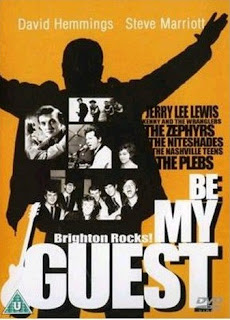This morning I tweeted a story from the Mail on Sunday:
When he returned home from the horrors of the First World War, a thankful Walter Brown planted an oak tree on the edge of his farm.
Standing tall more than a century later, it symbolises the longevity of his ancestors’ relationship with the land in Rutland.
The Brown family has tilled the soil in the Welland Valley for more than 300 years, but Walter’s grandson Andrew fears the new Agriculture Bill will mean he is the last.
Mr Brown, 56, says the Bill fails to protect the UK’s world-leading food and welfare standards.
And that could be the ‘final nail in the coffin’ for 40,000 family farms which would be replaced by massive US-style feedlots, where tens of thousands of cattle are crammed into pens with poor environmental standards.
Almost by return someone tweeted:
Having a low risk guess here that they're unshakeable Tory and, by definition and utterly predictable demonstration, hard Brexit supporters.
They were wrong on both counts.
Here is Andrew Brown commenting on the referendum result in 2016:
English farmer Andrew Brown says last week’s vote by the British people to leave the European Union (EU) will have long term negative implications not just for the nation’s agricultural sector, but for the country as a whole.
“Words fail me. This is an unmitigated disaster, not only for farming but for the whole country,” the farmer from Rutland in eastern England said.
Mr Brown had been an active campaigner for a ‘stay’ vote prior to the referendum, saying British farmers could not get a better trade deal with Europe than they had as members of the EU.
“People talk about unwinding regulation, but do you really think the EU nations are going to let trade partners have less compliance regulation than they do?” he asked.
“A vote to leave is like turkeys voting for Christmas.”
As to being a Conservative, Andrew Brown is an Independent member of Rutland County Council - the photo is of Lyddington, the largest village in his ward.
Around here it's not unknown for 'Independent' councillors to be members of the Conservative Party on the queit, but I have no reason to think that Andrew Brown is. His interest in conservation, for instance, is not typical of local Tories.
In fact, reading his biography I am struck by the thought that he sounds just the sort of person who should have featured prominently in the Remain campaign.
But even if Andrew Brown were a Tory and a new convert, we should still be welcoming him to our side of the debate. And I am pleased the Mail on Sunday is now campaigning in defence of our food standards.
Instead, most Remain activity on social media appears designed to make ourselves feel good and to ridicule our opponents.
But if we want to win in the end then we have to convert some of those opponents. And ridiculing people is about the last thing likely to do that.
I made much the same points back in March 2018, when I asked But could Remain win a second referendum?
I am now tempted to ask if we ever really wanted to defeat Brexit. Was it always more about feeling superior?



































